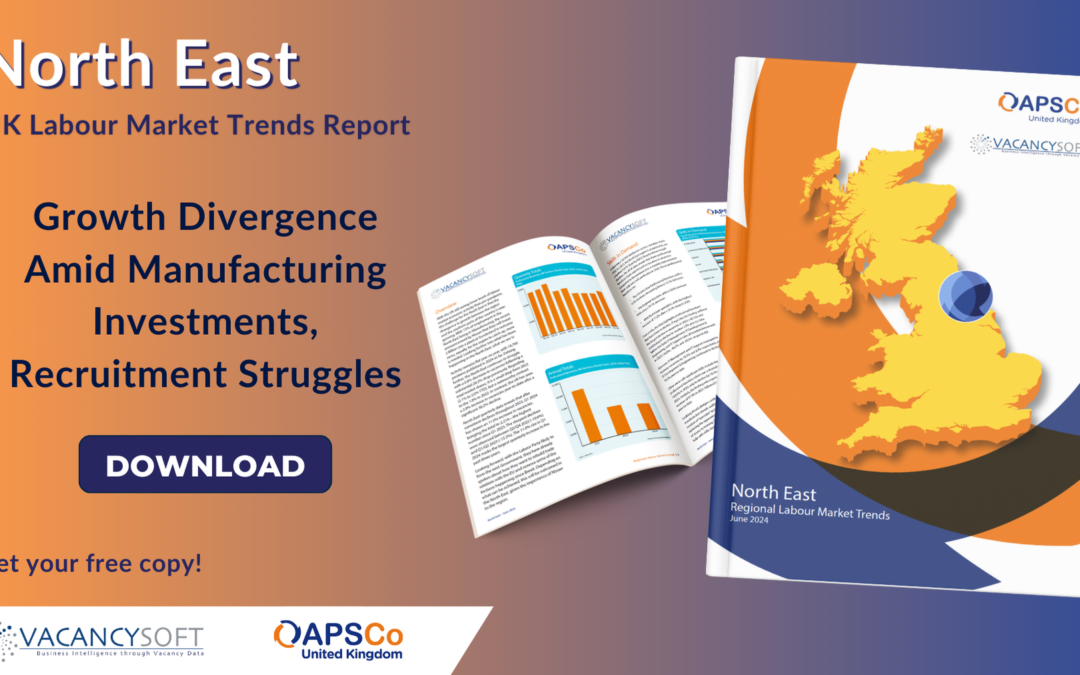
With the UK still experiencing lower levels of labour market economic activity than before the pandemic, the North East faces the challenge of a growing divergence in growth compared to the southern regions of the country.
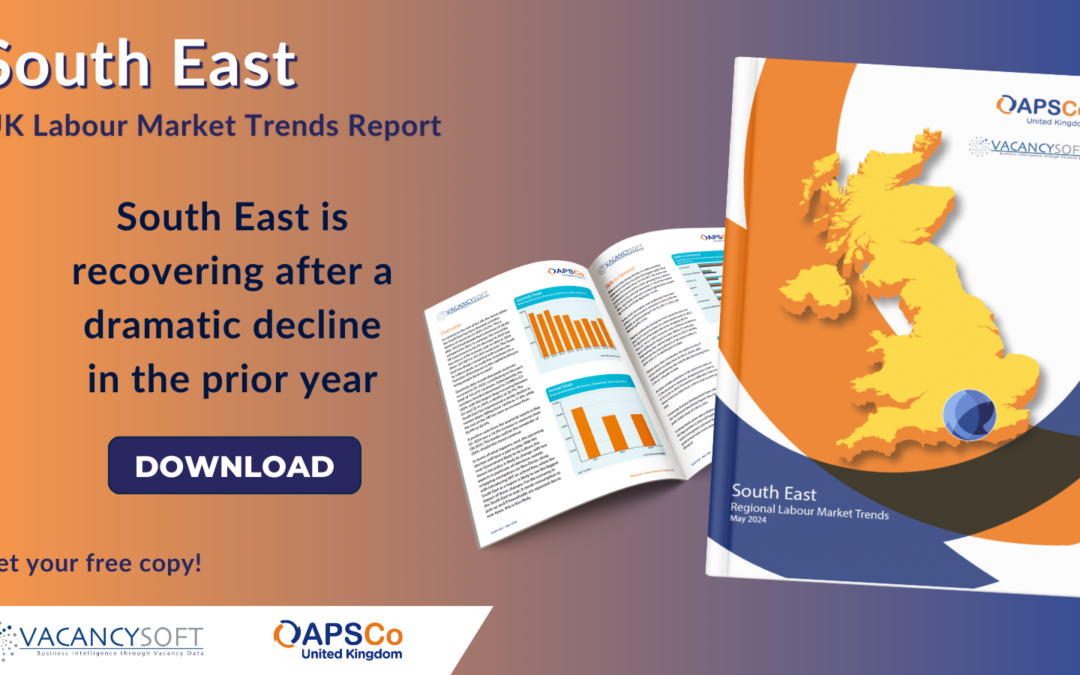
The symbiotic relationship between London and the South East has only strengthened in recent years, as the region has become a leading global hub for the high-tech industry. However, looking at this year so far, the region has experienced a slump in jobs and recruitment, especially compared to the peak of the post-pandemic period.
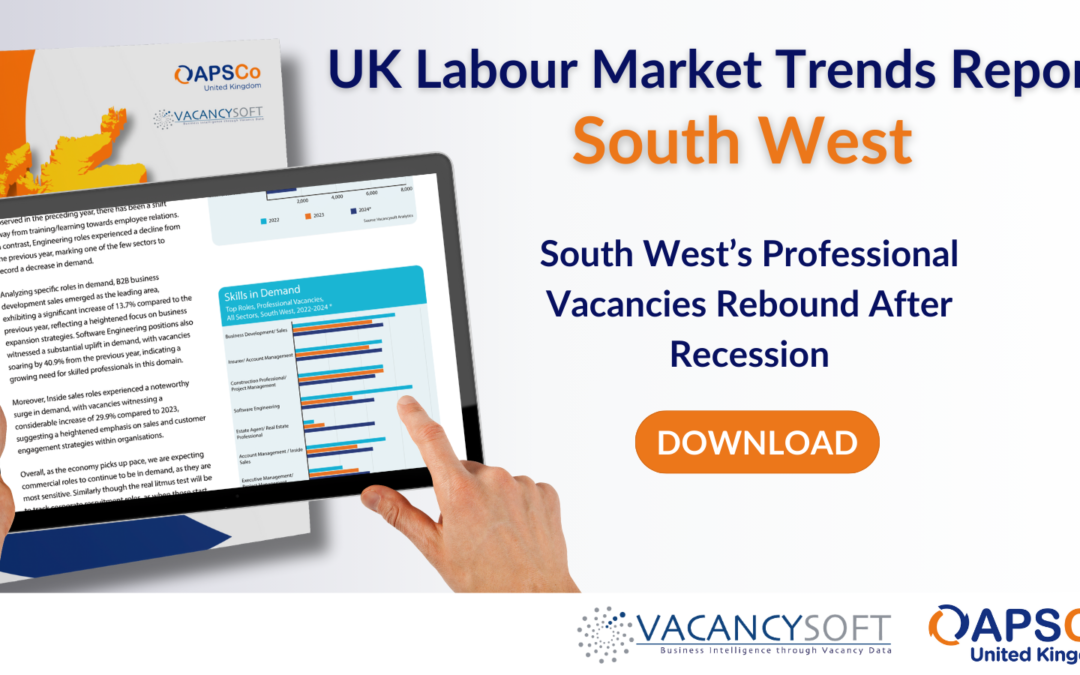
After the technical recession in 2023, which led to vacancies dropping in the region compared to 2022, we have seen a bounce back in Q1 so far, culminating in an uplift of 7.6% which compares favorably to the national figures (+5.4%.) As a result, the region now accounts for 6.7% of the national total in terms of vacancies, up from 5.8% in 2022.
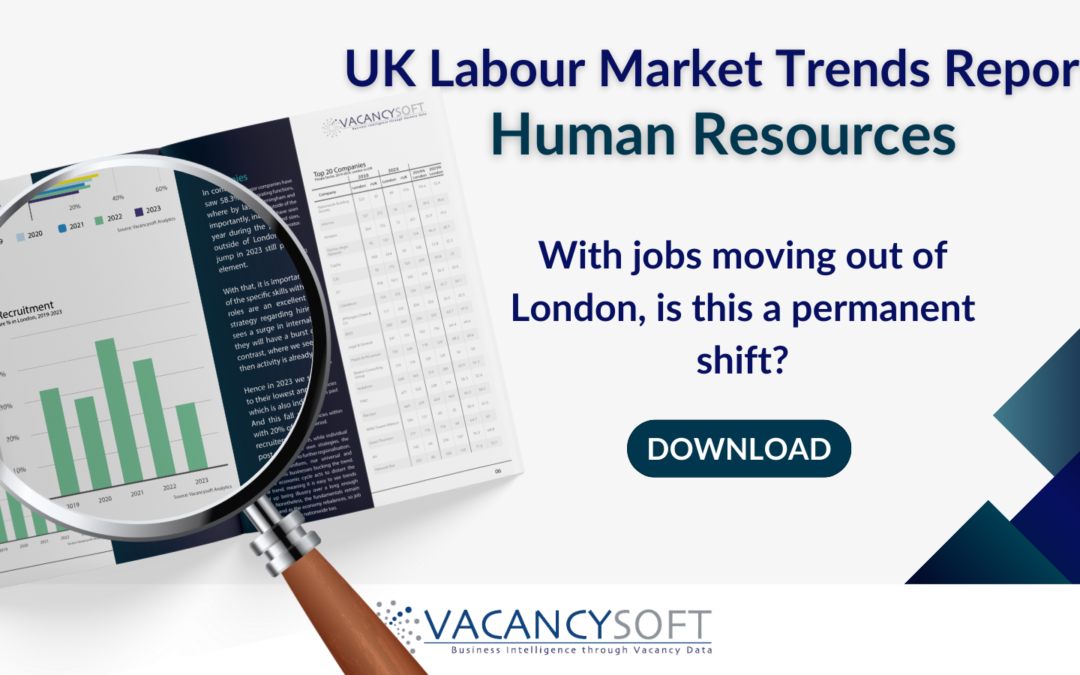
Post-pandemic economy shifting from London: HQ function vacancies down to 41.2% from 47.8% in 2019.

Job vacancies in 2023 fall by 23.7% compared to 2022, according to the latest UK Labour Market Trends report by leading professional body APSCo and labour market data analysts Vacancysoft.
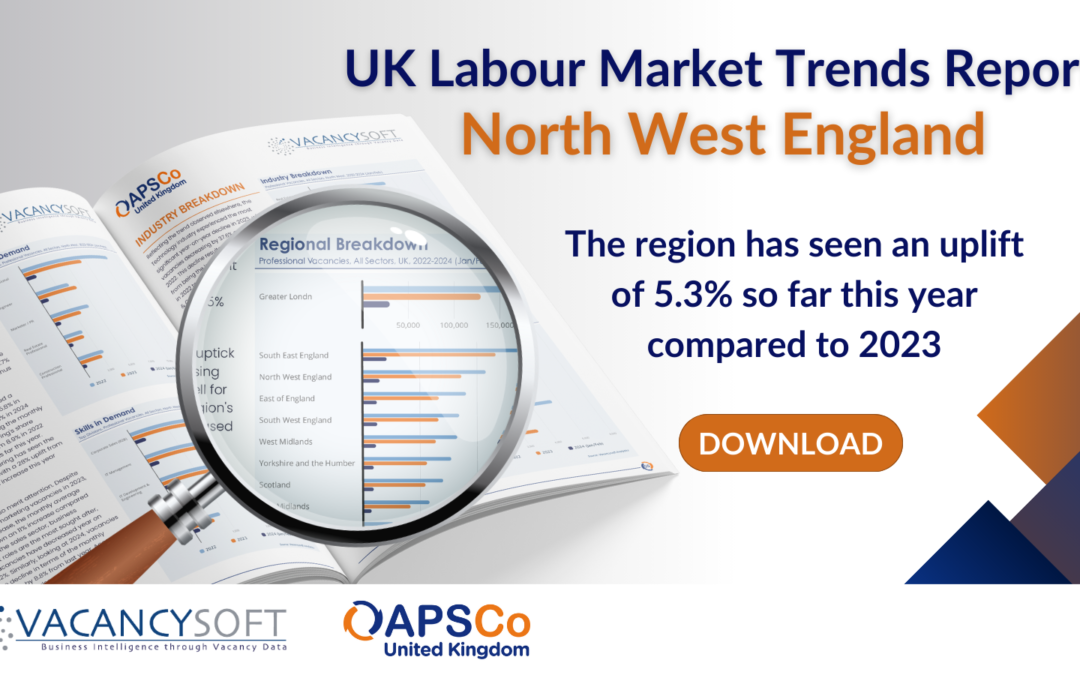
After enduring a challenging six months, which ultimately led to the UK entering a technical recession, signs of recovery are finally beginning to emerge. The North West region has managed to increase its share of the national total from 7.5% in 2022 to 8.5% in 2023. Turning to the current year, we observe an uptick in the northwest’s monthly average, increasing by 5.3% compared to 2023, which bodes well for regional recruiters.








